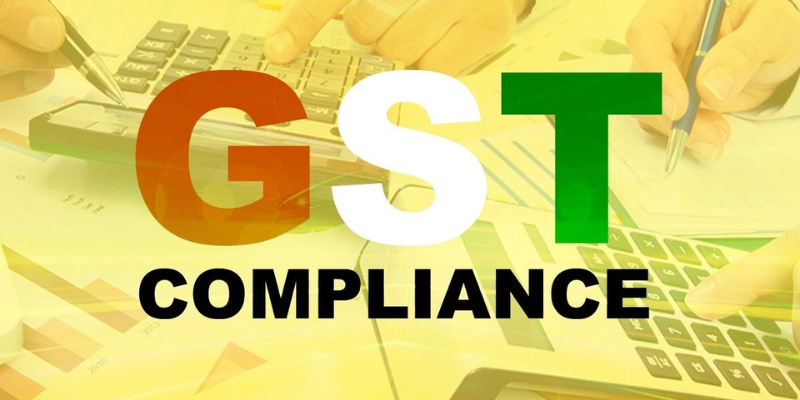India’s transition to the GST (Goods and Services Tax) was not just a reform in taxation; it marked a major shift in how businesses interact with the government, and more importantly, with technology. With an entirely digital tax system, GST has made compliance faster, smoother, and far more transparent than previous systems.
For professionals and business owners, keeping up with this digital transformation is not just beneficial it’s absolutely necessary. With the growing demand for practical skills, enrolling in a GST Course in Chennai is becoming an essential step toward understanding both the legal and technological aspects of this tax system.
Embracing Digital Transformation
At its core, GST is a technology-driven tax. From the day it was rolled out, nearly every process, registration, filing, payments, and audits, moved online. The Goods and Services Tax Network has become the backbone of this system, enabling real-time updates, interdepartmental coordination, and data security.
Gone are the days of physical filing and long queues. Now, businesses can log in, update returns, and reconcile invoices all through a digital platform that is available 24/7. This digital shift has allowed even smaller firms to access and manage compliance like never before.
However, the flip side of this rapid digitalization is the need for technical understanding. Without the right skills or knowledge, it’s easy to get lost in the ever-changing GST ecosystem.
The Growing Need for Tax-Savvy Professionals
For corporate professionals working in finance, procurement, or compliance, knowledge of GST is not optional it’s a core part of the job. GST knowledge essential for corporate professionals includes understanding filing frequencies, managing input tax credits, and identifying compliance risks.
Professionals who are confident with both tax law and digital tools are in high demand across sectors. Companies need team members who can manage GST filings through software, troubleshoot errors, and interpret digital reports quickly and accurately.
How Accounting Software Simplifies Compliance
With the introduction of GST, popular accounting tools like Tally have undergone significant transformations. From managing invoices to generating error-free GST reports, Tally has become a one-stop solution for small to mid-sized businesses.
The latest updates in Tally for GST compliance include automated reconciliation, smart error detection, and seamless return generation. These updates are not just cosmetic they solve real compliance problems, especially when businesses deal with multiple suppliers or clients across different states.
For someone managing a company’s books, this means fewer manual entries and less risk of filing incorrect returns. This also explains the surge in demand for professionals who are fluent in Tally and GST workflows, prompting many to pursue certification from reputed training centers.
Blockchain’s Role in a Transparent Tax Future
While Tally simplifies compliance, a more revolutionary technology, blockchain, is quietly being integrated into GST implementation. The advantages of using blockchain for GST collection are clear: security, transparency, and efficiency.
Because blockchain maintains tamper-proof records across a decentralized network, it significantly reduces the chances of tax evasion or input credit fraud. Every transaction becomes traceable and verifiable by all stakeholders.
This increasing transparency leads us into the idea of blockchain for GST transparency, where suppliers, buyers, and tax officials all operate on a shared ledger. Although still in early stages of implementation in India, blockchain pilots for GST-related use cases have already shown promising results.
Professionals with a forward-looking mindset should pay attention to this trend. Understanding blockchain fundamentals and how it may affect tax systems will soon become as critical as knowing Tally is today.
Why Cybersecurity Matters in GST
Along with digitization comes the unavoidable need for cybersecurity. As more sensitive financial data moves online, the risk of data breaches and cyber fraud increases. Every business must prioritize a cybersecurity compliance checklist for GST, which includes:
- Multi-factor authentication for logins
- Encrypted databases and cloud backups
- Regular audits of digital systems
- Role-based access control
- Staff training on data hygiene
It’s not just about protecting tax information. A data breach can impact your business reputation, attract regulatory penalties, and result in massive financial losses.
With the stakes so high, professionals managing GST tasks must also be aware of basic cybersecurity practices. This is especially true in organizations where compliance and IT teams work together.
Upskilling at the Right Place
The demand for tax professionals who understand both GST regulations and digital tools is only going to rise. This makes now the perfect time to invest in structured training that combines real-world application with academic foundations.
A reputed Training Institute in Chennai can help you gain this competitive edge. With access to updated curriculum, hands-on practice, and industry case studies, these institutes equip learners with the skills needed in today’s finance and taxation roles. Whether you’re looking to boost your resume or get practical exposure, training institutes serve as a great launchpad.
Continuous Learning for Long-Term Success
GST laws are updated frequently. New return formats, invoice rules, and tech guidelines are introduced almost every quarter. Staying up-to-date is vital, especially in a rapidly evolving and technology-enabled regulatory environment.
Regular reading, subscribing to GST newsletters, and attending workshops are a few ways to stay informed. But structured courses offer more depth. If you’re serious about a career in tax, compliance, or accounting, consider enrolling in a certified Tally Course in Chennai where the focus is on both legislative knowledge and hands-on experience with modern tools.
Technology has become the foundation of GST implementation in India. From online portals and smart accounting software to the rise of blockchain and emphasis on cybersecurity, it’s clear that digital literacy is no longer optional it’s essential.
